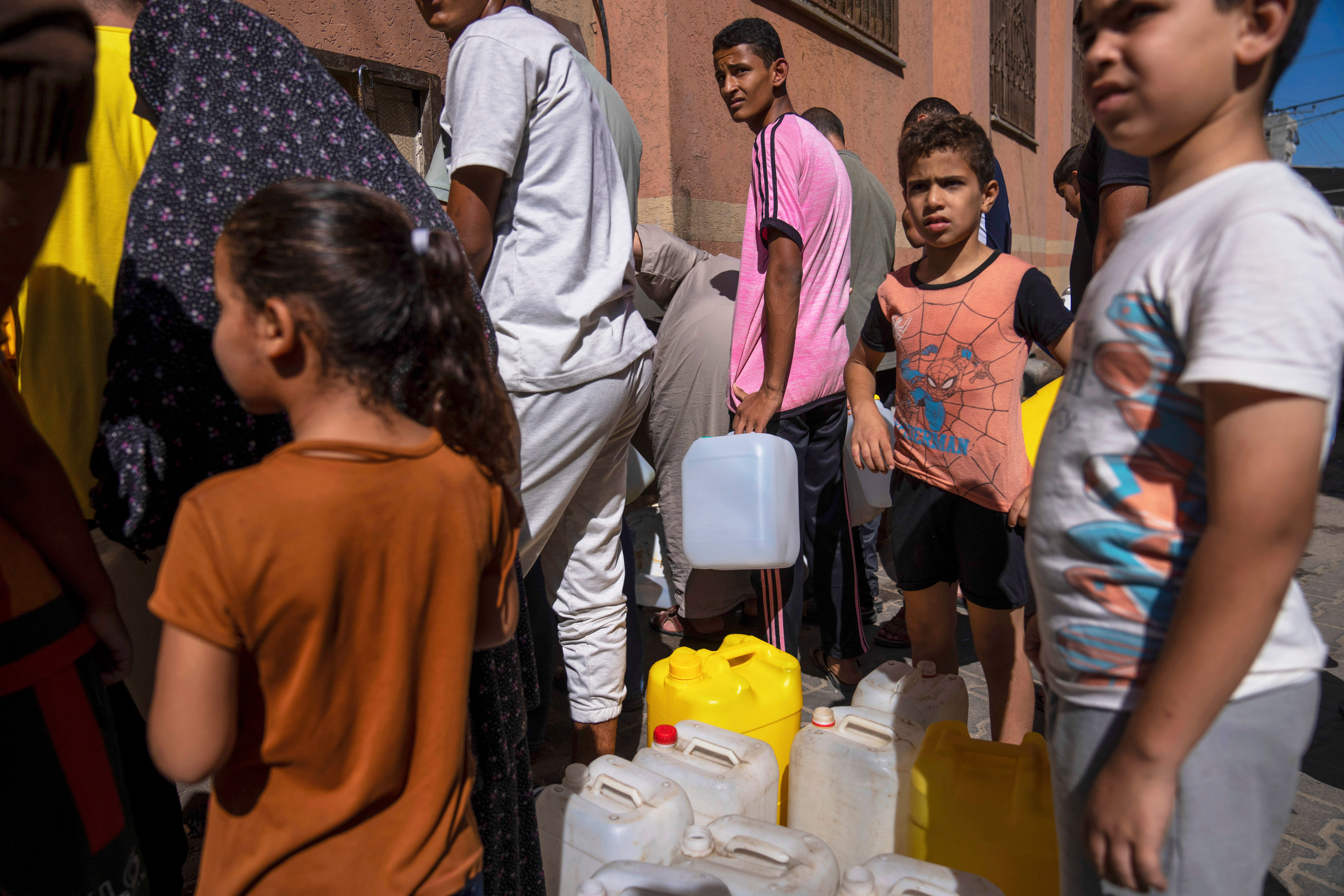Gaza's limited water supply raises concerns for human health
Limited water supplies in Gaza pose a growing threat to human health there

A lack of clean water in the Gaza Strip is raising major concerns for human health.
“Gaza is running out of water, and Gaza is running out of life,” said Philippe Lazzarini, chief of the U.N. agency for Palestinians.
Gaza normally gets its water supplies from a combination of sources, including a pipeline from Israel, desalination plants on the Mediterranean Sea and wells. Those supplies were slashed when Israel cut off water, along with the fuel and electricity that power water and sewage plants, in the wake of the Hamas attacks.
The United Nations recognizes access to water as a human right, and on a basic level, the human body needs a constant supply of water to survive. “Next to air,” water is “really the most important thing for maintenance of your health,” said Dr. Tsion Firew, an emergency physician at Columbia University who has worked on water access in humanitarian settings.
A report from the U.S. National Academies of Science and Medicine says men need to drink about 3.7 liters (125 ounces) and women need about 2.7 liters (91 ounces) per day to be adequately hydrated. Most of that comes from drinking water or beverages, and about 20% from food, including fruits.
Many people can’t survive more than a few days without water, Firew said — especially vulnerable groups like children, the elderly and those with health conditions. Dehydration can cause dizziness, fatigue and confusion and in severe cases lead to organ failure and death.
Water access is also crucial for sanitation, and a lack of clean water can lead to the spread of infections like cholera and dysentery. Diarrheal diseases that can be spread by unclean water are the leading cause of death for children under 5 across the world, Firew said.
Health care settings are a particular concern as they rely on clean water to care for patients who are sick and injured.
As hospitals across the Gaza Strip struggle to care for thousands of patients, the World Health Organization said the lack of water is putting lives in danger.
“Water is needed to ensure sanitary conditions on inpatient wards, in operation rooms, and emergency departments. It is essential for the prevention of hospital associated infections and for the prevention of outbreaks in hospitals,” the WHO said in a statement.
___
The Associated Press Health and Science Department receives support from the Howard Hughes Medical Institute’s Science and Educational Media Group. The AP is solely responsible for all content.
Bookmark popover
Removed from bookmarks